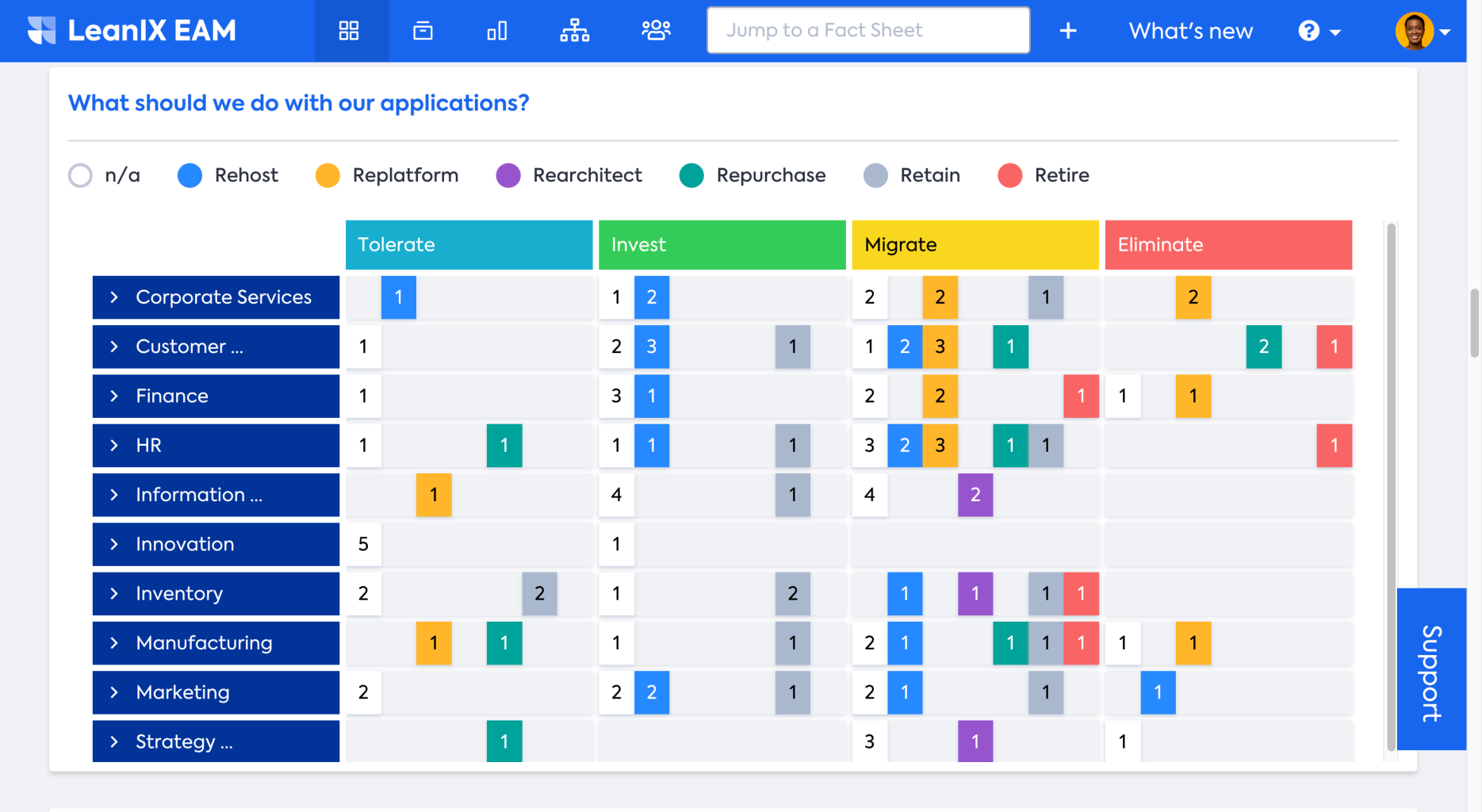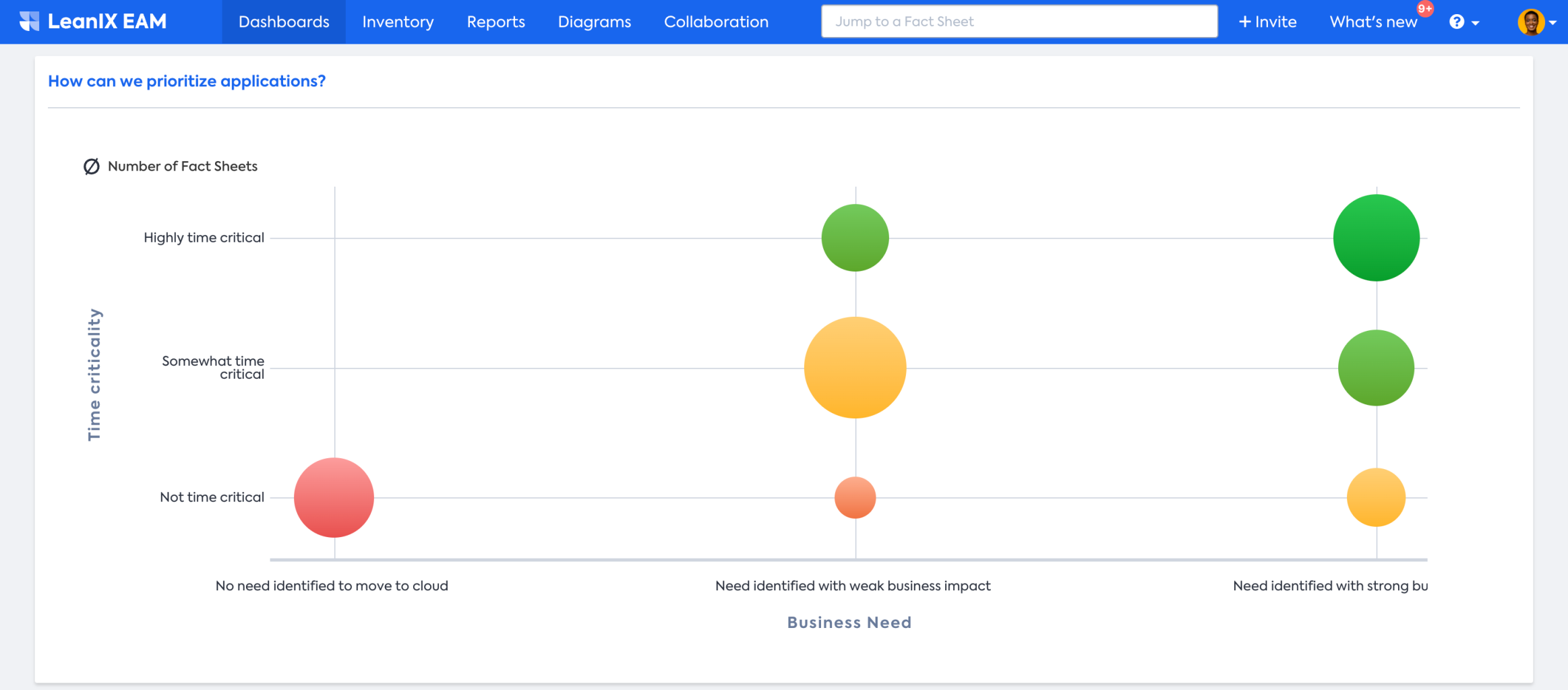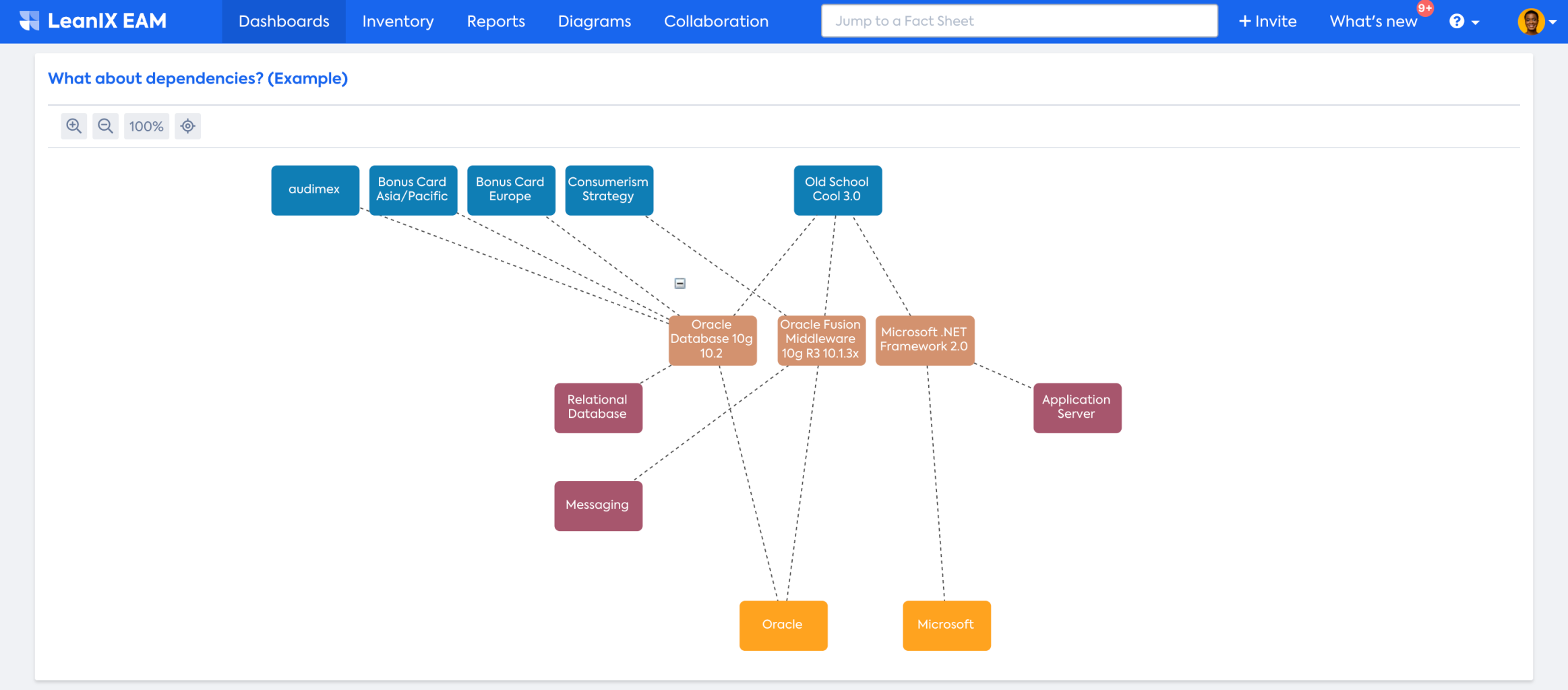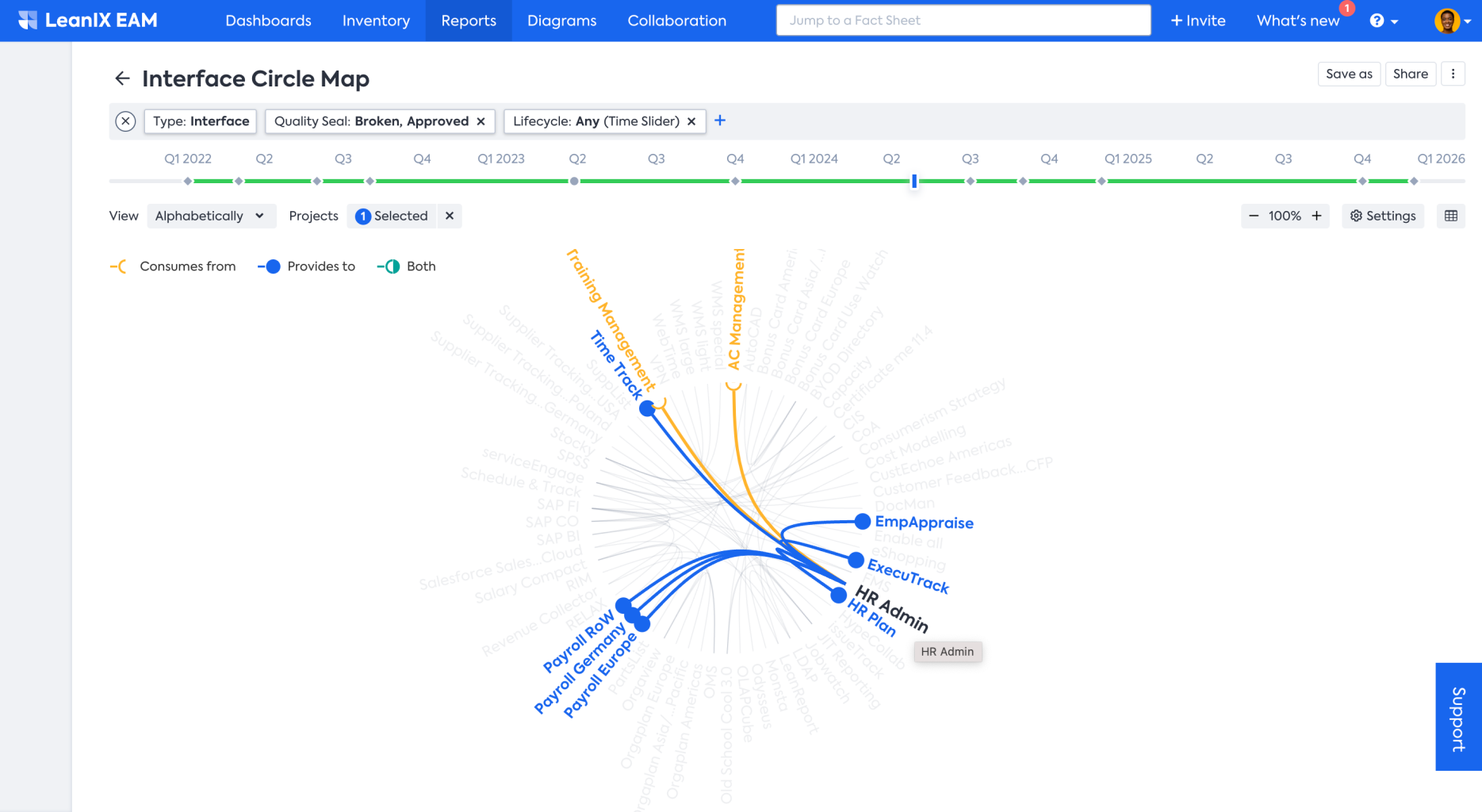Step 1. Identify Goals and Scope Applications
After evaluating your applications for the most suitable modernization strategy (a step usually done as part of Application Portfolio Assessment), it is time to define some KPIs/goals you want to measure during your modernization initiative as well as the scope of applications.
Identify Objectives and Key Results
In your discussions with business stakeholders at the beginning of this process, you should gain clarity on the following points and use them as guidance throughout the entire modernization journey:
- What does ‘modern’ mean for our organization? Is it a shift of XX% of applications to the cloud, API-first, better technical or functional fit of applications, having more applications in the Invest category (TIME classification), or something completely different? This should be completely aligned with your business goals.
- Based on those discussions, align on how you want to measure modernization and which are the right KPIs/Objectives and Key Results (OKRs) for you to look at in SAP LeanIX.
- You can capture KPIs/objectives and key results in SAP LeanIX in the Objective Fact Sheet.
Scope Applications
When scoping your applications for modernization (here, in the example of cloud migration), it's important to prioritize which ones to focus on first, as it is impractical to modernize all applications simultaneously. In this step, you need to identify which applications will impact your business most while requiring the least effort, time, or cost.
To do this, you can define quick wins; for instance, you may want to begin modernizing applications that require minimal effort but deliver high business impact first. This will allow you to demonstrate the value of modernization to your stakeholders and build momentum for further efforts.
For example, using the SAP LeanIX Matrix Report, you can identify which applications are categorized as both Invest under the TIME classification and Rehost under the 6R classification. The Invest category contains applications with a high Functional and Technical Fit, meaning that both sides value this application. Rehosting applications is a quick way to migrate to the cloud because you do not improve functionality. This might make sense for applications that already have a high Functional Fit (e.g., Invest category). Applications within Migrate could rather be improved, which might mean Rearchitect as a rather complex modernization strategy.

Please note that the views presented include attributes like 6R and TIME classification. For workspaces with meta model V3, these attributes needs to be made available by admin in the Advanced setting by activating Portfolio Strategy feature under Optional Features & Early Access section.
Maybe your priority is to focus on time-critical applications which need to be modernized quickly. You can make use of the Portfolio Report and choose the Business Need and Time criticality fields for X and Y axis and find out which applications need priority.

SAP LeanIX provides you with the ability to define and set up custom attributes. Here the Business Need and Time criticality are such custom attributes that are defined individually by the customer.
Before you can change or retire an Application, think about how it would affect other Applications in your organization's environment. With the help of Diagrams and Interface Circle maps, you can also analyze the dependencies and various interfaces to check and understand which other applications might be impacted and need to be taken into the scope.

In Diagrams, you can uncover the IT components an application utilizes. Additionally, identify other applications that rely on the same IT components, and explore the suppliers associated with these components and the technologies they employ. This analysis will provide valuable information to guide your initiative and determine the appropriate course of action within your 6R strategy.

The interface circle map gives you fast and easy-to-understand insight into the connected Applications through interfaces.
Additionally, you can choose a pilot domain (Business Capability), for example, Finance, to focus on first. This allows you to break down the modernization effort into manageable pieces and gain experience and knowledge that can be applied to future iterations while also minimizing risk by starting with a smaller scope.
Overall, prioritizing your modernization efforts will help you achieve your objectives efficiently and effectively while maximizing the value for your organization.
Next Step
Updated 17 days ago
